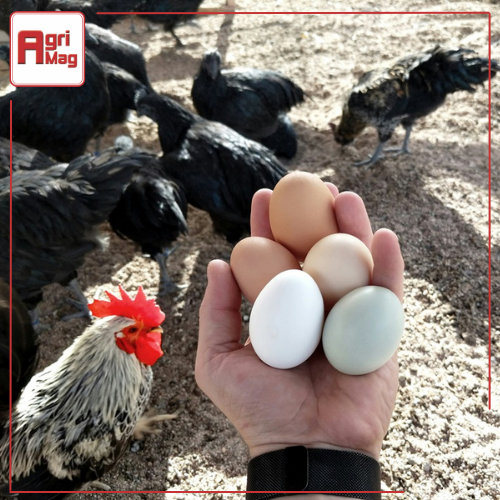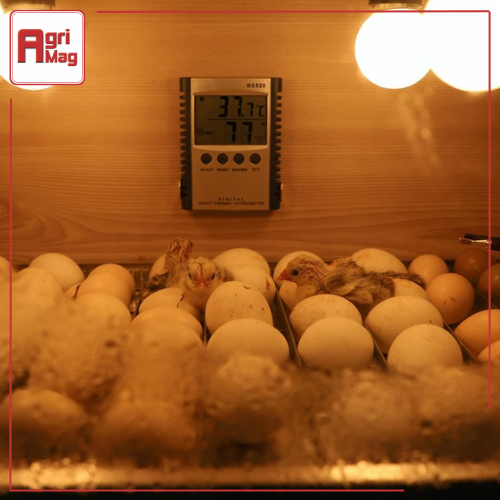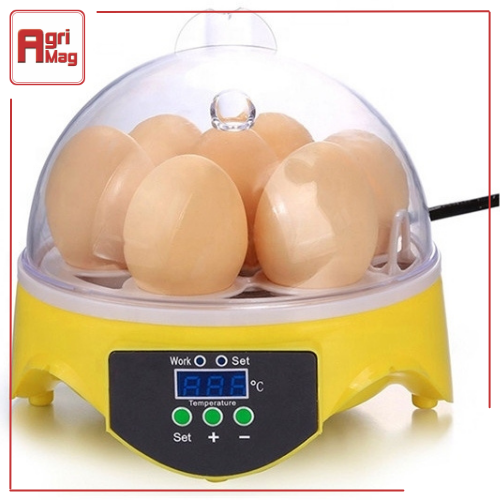
Factors to Consider When Choosing and Buying an Egg Incubator
Date: 15/08/2023
Buying an egg incubator can be a significant investment for poultry farmers, hobbyists, and educators alike. Whether you're looking to hatch chicken eggs, quail eggs, or even exotic bird eggs, selecting the right incubator is crucial for successful hatching. In South Africa, where the poultry industry is thriving, understanding the key factors to consider when purchasing an egg incubator will help you make an informed decision and improve your hatching success rate. Visit AgriMag to make your purchase for egg incubators available.
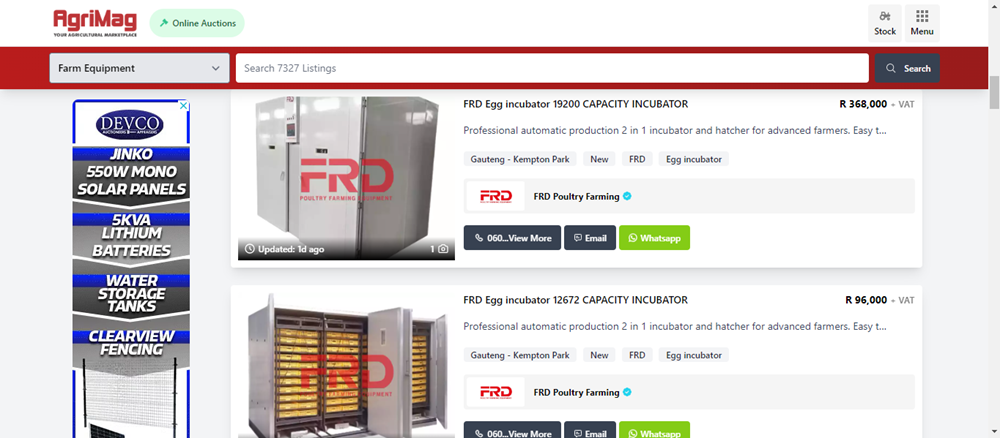
Various Factors to Consider Before Buying an Egg Incubator
1. Capacity and Size
The first factor to consider when buying an egg incubator is its capacity. Incubators come in various sizes, from small models that hold a few eggs to large commercial units that can handle hundreds. Your choice should depend on your needs:
- Hobbyists and small-scale farmers: A smaller incubator with a capacity of 10-50 eggs might suffice.
- Medium to large-scale farmers: Opt for incubators that can handle 100-500 eggs or more, depending on your production scale.
Consider your future needs as well. If you plan to expand your operation, it might be wise to invest in a larger incubator now.
2. Type of Incubator
There are two main types of incubators: still air and forced air.
- Still Air Incubators: These rely on natural air circulation. They are generally less expensive but may have uneven temperature distribution.
- Forced Air Incubators: Equipped with fans to circulate air, these incubators provide more consistent temperature and humidity levels, leading to better hatching rates.
For beginners, a forced air incubator is often recommended due to its reliability.
Read: Types of Egg Incubators for Sale Available in South Africa
3. Temperature and Humidity Control
Accurate temperature and humidity control are vital for the successful hatching of eggs. Most modern incubators come with built-in thermostats and hygrometers. Here’s what to look for:
- Digital Controls: Digital displays and controls allow for precise adjustments and easy monitoring.
- Alarm Systems: Some incubators feature alarms to alert you if temperature or humidity levels deviate from the desired range.
- Adjustability: Ensure the incubator allows for easy adjustment of temperature and humidity to cater to different types of eggs.
Maintaining a stable environment inside the incubator is crucial, as even minor fluctuations can affect hatch rates.
4. Turning Mechanism
Eggs need to be turned regularly to prevent the embryo from sticking to the shell. Manual turning can be time-consuming and prone to human error. Therefore, consider the following options:
- Manual Turning: Suitable for small-scale operations or hobbyists.
- Automatic Turning: These systems turn the eggs at regular intervals, ensuring consistent results and reducing labor.
For larger batches, an automatic turning mechanism is highly recommended.
5. Power Source and Backup
South Africa's electricity supply can be inconsistent in some areas, so it’s essential to consider the power source and backup options for your incubator.
- Electricity: Most incubators run on standard electrical power. Ensure the unit is compatible with your local power supply.
- Battery Backup: In areas prone to power outages, an incubator with a battery backup can prevent disruptions that could jeopardise your hatch.
Some models also come with solar power options, which can be a sustainable alternative.
6. Ease of Cleaning and Maintenance
Hygiene is critical when incubating eggs. Bacteria and other contaminants can significantly reduce hatch rates. Look for incubators that are easy to clean and maintain:
- Removable Trays: These make it easier to clean the interior of the incubator.
- Smooth Surfaces: Avoid models with hard-to-reach areas where dirt and bacteria can accumulate.
- Durable Materials: Ensure the incubator is made of durable, easy-to-clean materials.
Regular cleaning and maintenance will prolong the life of your incubator and improve hatching success.
7. Cost and Warranty
Budget is always a consideration when making any purchase. Egg incubators come in a wide range of prices, so determine what you can afford without compromising on essential features.
- Price Range: Compare different models within your budget to find the best value.
- Warranty: Check if the incubator comes with a warranty. A good warranty can protect your investment and provide peace of mind.
8. Brand Reputation and Reviews
Finally, consider the reputation of the brand and read reviews from other users. Established brands are more likely to offer reliable products and customer support.
- Customer Reviews: Look for feedback from other buyers in South Africa. This can provide insights into the product's performance and durability.
- Brand Reputation: Brands with a history of quality and reliability are often a safer bet.
Buying an egg incubator is a significant step for anyone involved in poultry farming or bird breeding in South Africa. By considering factors such as capacity, type, temperature and humidity control, turning mechanism, power source, ease of cleaning, cost, and brand reputation, you can choose an incubator that meets your needs and enhances your hatching success. With the right incubator, you'll be well on your way to successful and efficient egg hatching. Start your search for egg incubators on AgriMag.
Categories:
Common category
Category Search:
Latest articles:
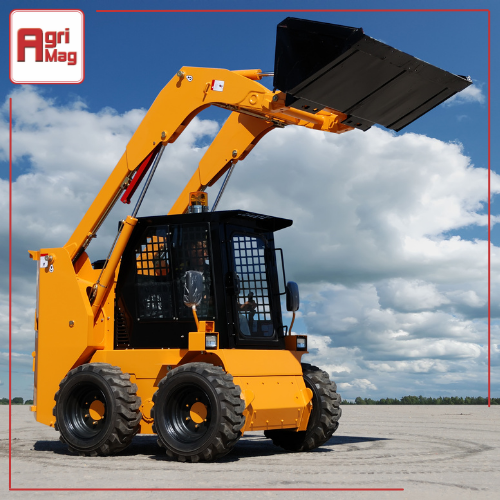
What to Look for When Buying a Skidsteer Loader for Farming

Why Planning Early for the Planting Season Pays Off
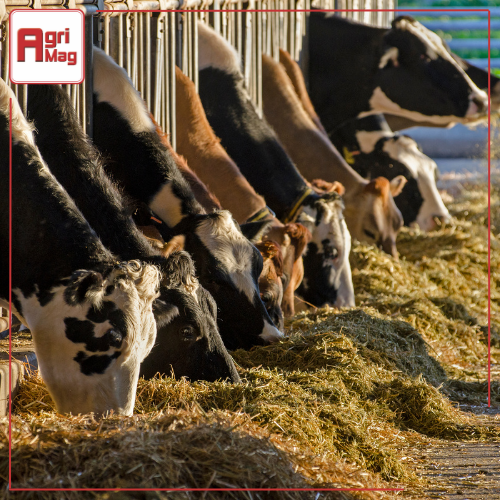
Why Winter Feed Management is Crucial for Livestock Health

